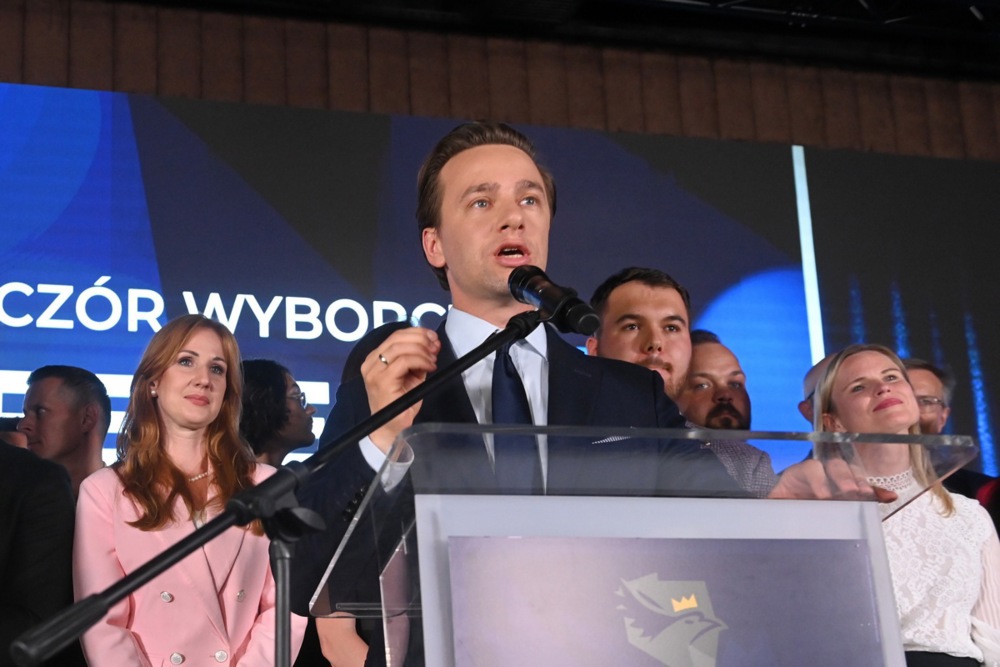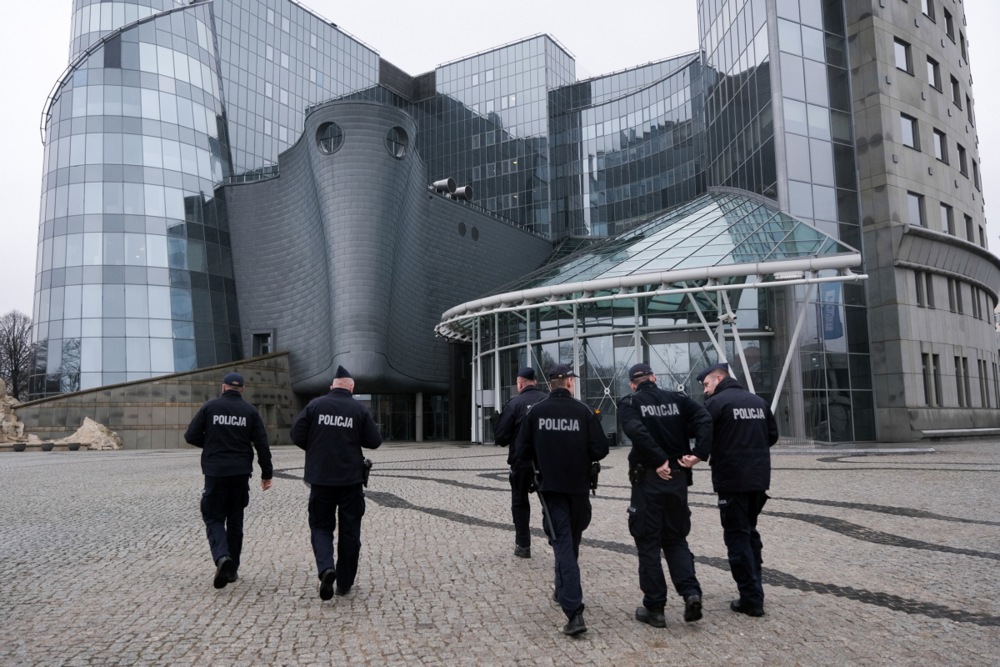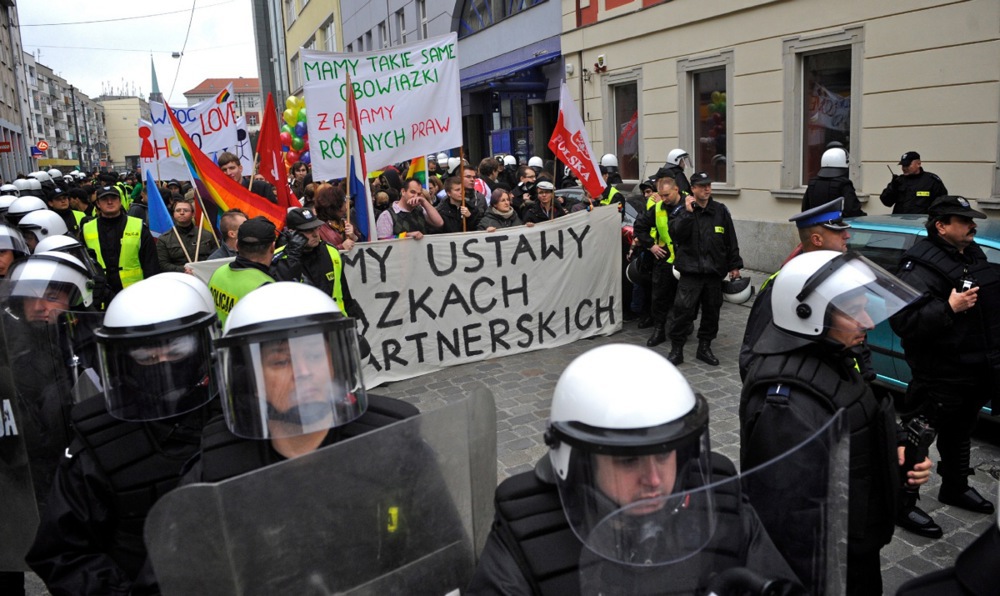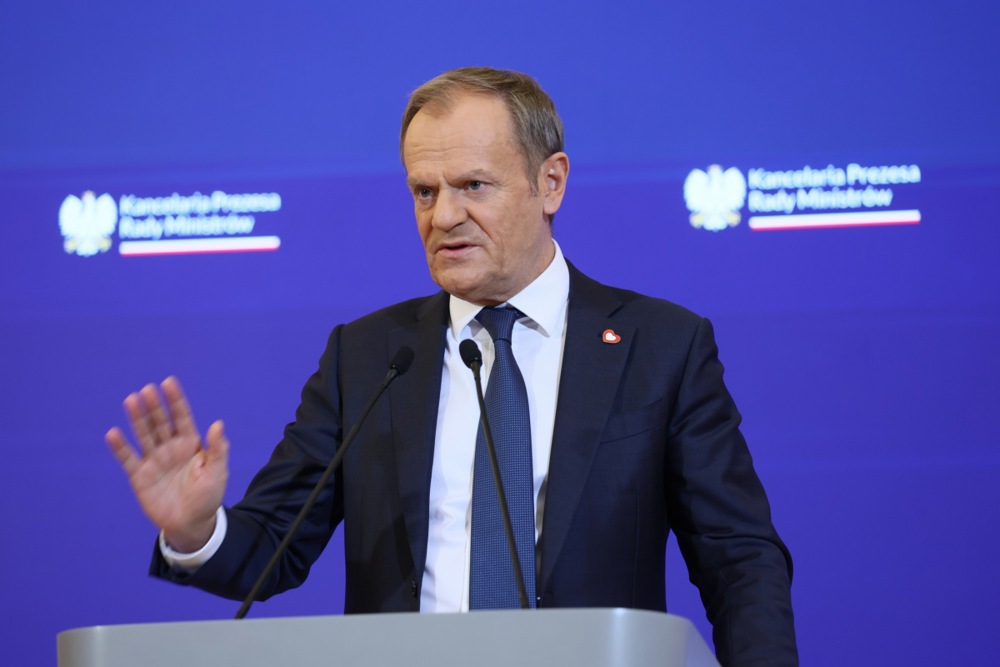US presidential hopeful Donald Trump’s pick for vice-president, Senator JD Vance, has raised some eyebrows in Poland.
Vance, chosen as nominee on July 15, is remembered in Poland for slamming Polish Prime Minister Donald Tusk’s government for its takeover of Polish public media.
The VP choice has also clashed with the PM over the stance US Republicans have taken in Congress regarding aid for Ukraine.
The Ohio Senator’s elevation to become Trump’s running mate in the US elections in November has, though, delighted Poland’s opposition Conservatives (PiS), while it has been met with silence by Tusk’s ruling Liberal KO party.

In January this year, Vance wrote to US State Secretary Antony Blinken questioning US President Joe Biden’s lack of comment over the way the Polish Government took over Poland’s public media within a week of coming into office in December last year.
The takeover bypassed the law on public media, which gives the National Media Council the right to hire and fire the management of public media, via the use of the commercial code’s provisions on liquidation. Despite that, the government has made no secret of the fact that it simply wanted to remove any PiS influence on media chiefs.
In his letter Vance stated that the mass purge of journalists in public media outlets in Poland “raises questions about the new government’s commitment to media freedom and the rule of law”.
He noted that “Biden administration officials, at least publicly, have said nothing”, adding: “It is not immediately obvious how the Biden administration’s silence on the situation in Poland can be reconciled with past administration rhetoric regarding press freedom in Central Europe,” referring to the Biden government’s earlier statements of concern about media pluralism in Hungary.
The Republican VP nominee also commented on the positions taken by the European Union against both the previous Polish PiS government and the Hungarian Government, some of which were first developed during Tusk’s tenure as President of the European Council (2014-2019)

“Some have wondered whether appeals to press freedom and the rule of law are used as a reminder of values which must be committed to or as cudgels with which to call down the wrath of international institutions and non-governmental organisations upon political opponents. It is my hope that it will always be the former, but I fear the reaction to Prime Minister Tusk’s handling of the media may suggest otherwise,” Vance said.
He pulled no punches about how he saw Tusk’s actions against public media affecting future Polish-American relations.
“The United States and Poland have traditionally enjoyed close bilateral relations reinforced by our shared appreciation for liberty and democracy. Poland is a valuable ally and one of the few countries to meet its 2 per cent NATO defence spending benchmark in 2023.
“I urge you [Secretary of State Blinken] to encourage Poland’s new government to reconsider any actions that could undermine it or the freedoms Polish and American citizens both hold dear.”
Vance remonstrated with Tusk over the latter’s criticism of the Republican Party in the US Congress for blocking aid to Ukraine.
On February 8, Tusk had written on X: “Dear Republican Senators of America. Ronald Reagan, who helped millions of us to win back our freedom and independence, must be turning in his grave today. Shame on you.”
Trump’s VP pick responded immediately: “The new leader of Poland is arresting political opponents and owes his country’s security to the generosity of mine. He might consider showing some appreciation, or at least toning down his own authoritarian impulses.”
The US Senator was referring to the fact that the Tusk government had detained two PiS MPs despite them having been covered by a Presidential pardon.
In addition, recent developments may have given Vance more ammunition to target the Tusk administration.
On July 15, Marcin Romanowski, Polish PiS MP and a former deputy justice minister, was forcibly detained after losing his Polish parliamentary immunity. That was despite the fact that days earlier he had voluntarily offered himself up for questioning. Romanowski and other officials are alleged to have misappropriated resources from Poland’s fund for helping victims of crime.
The manner of his detention, in front of cameras and handcuffed by police alongside Poland’s internal security agency (ABW), was condemned by PiS politicians and media outlets sympathetic to the Tusk government. Critics included foreign minister Radosław Sikorski who took to social media to express his doubts whether the ABW should have been involved at all.
PiS MPs have not hidden their pleasure at Vance’s nomination as VP candidate. Former deputy foreign minister Paweł Jabłoński recalled the Senator’s views on the takeover of Polish State media, while another PiS MP Janusz Kowalski went further stating: “I trust that, in a few months time, the new US president will mobilise the free world against the Tusk regime, which is breaching human rights in Poland, and that this will lead to international condemnation of the Polish Government’s actions.”
The last Trump administration (2016-2020) enjoyed good relations with the former PiS government but was critical of proposed media legislation that would have adversely affected the US firm Warner’s Polish broadcaster TVN. As a result of that the Polish President Andrzej Duda, a close ally of Trump, vetoed the legislation.





